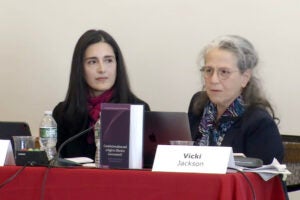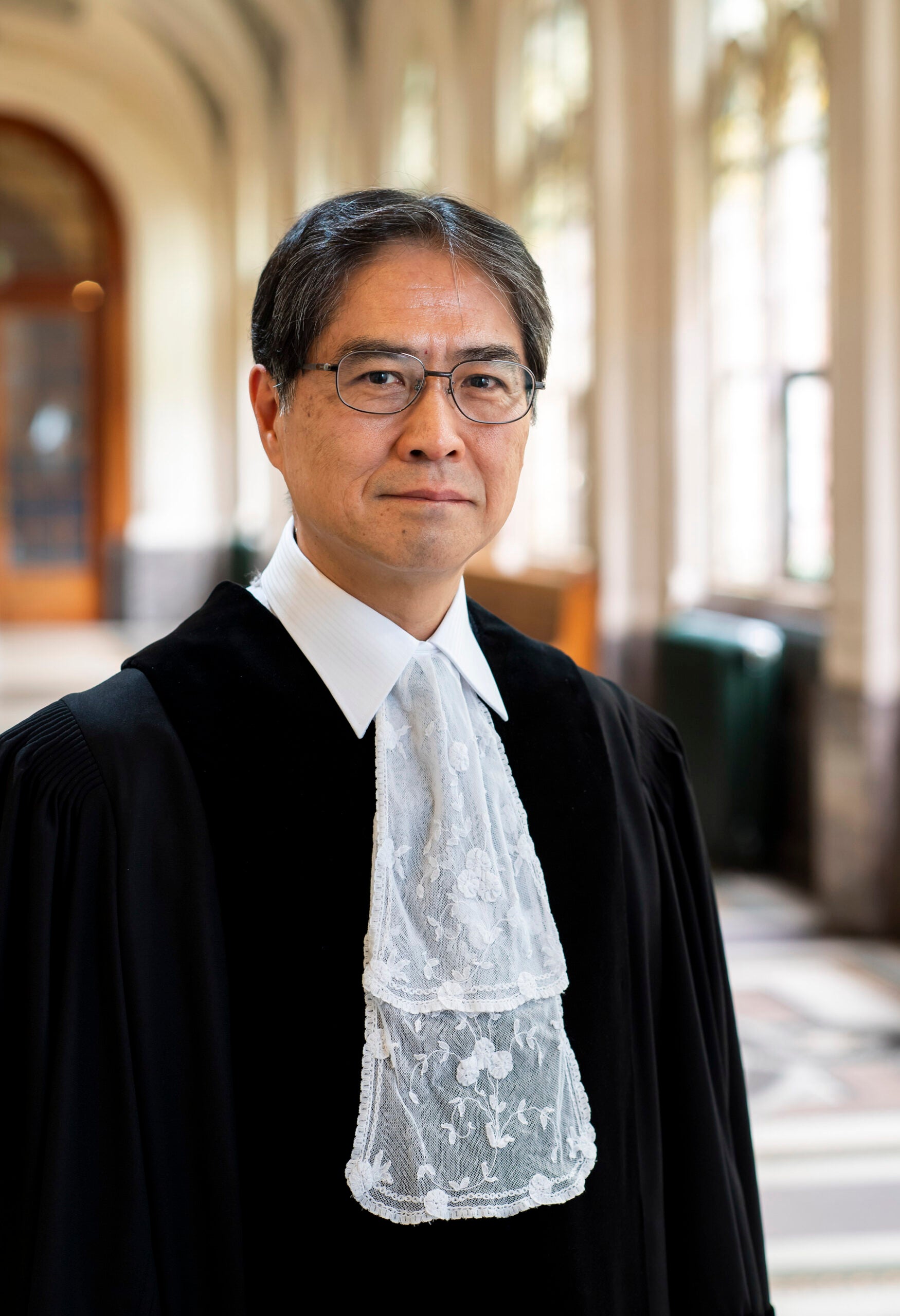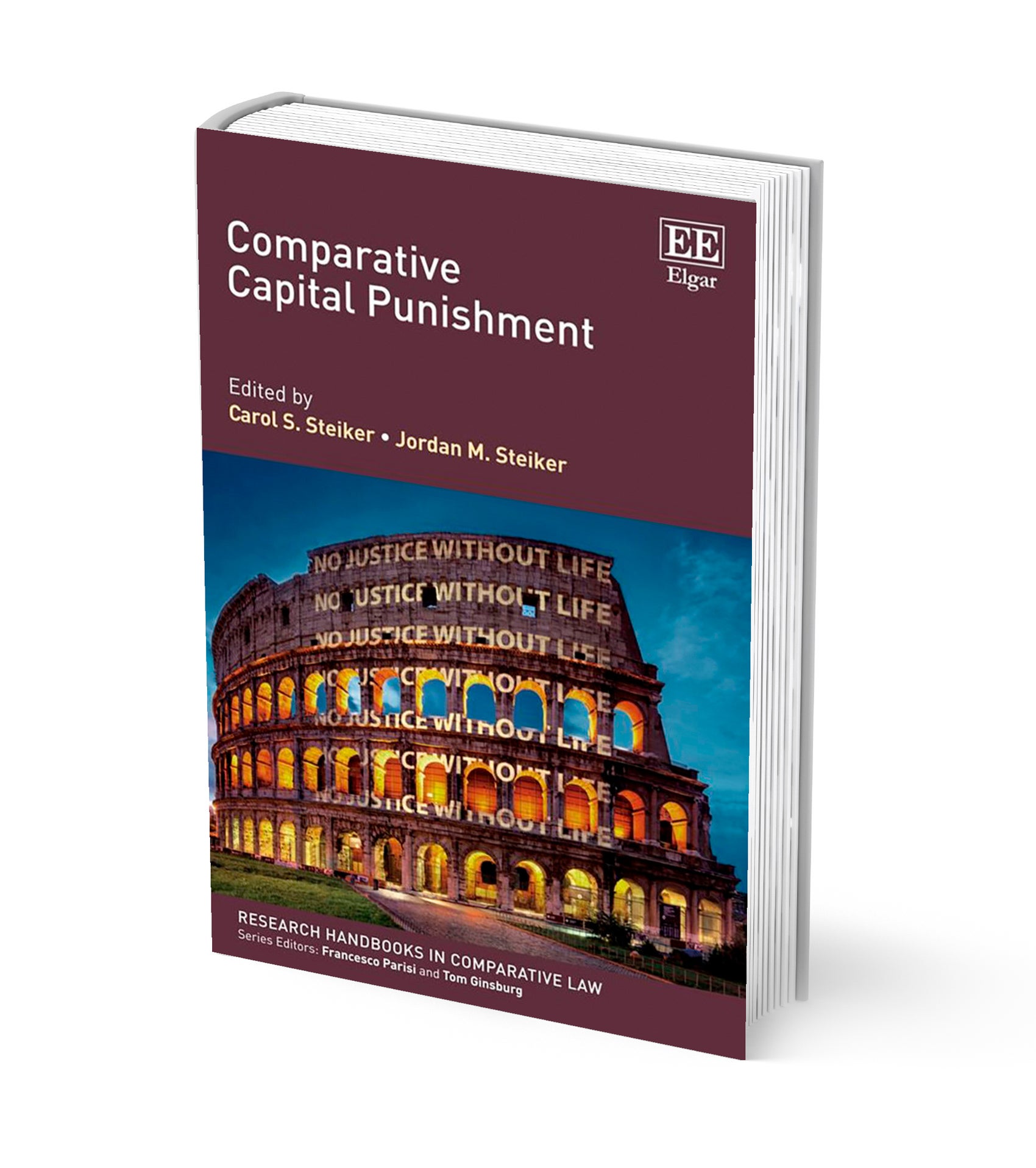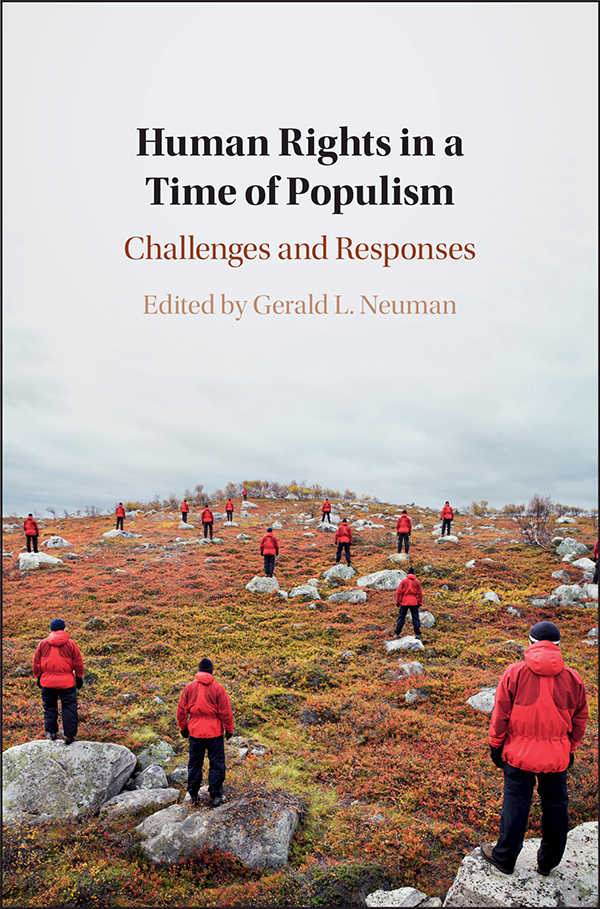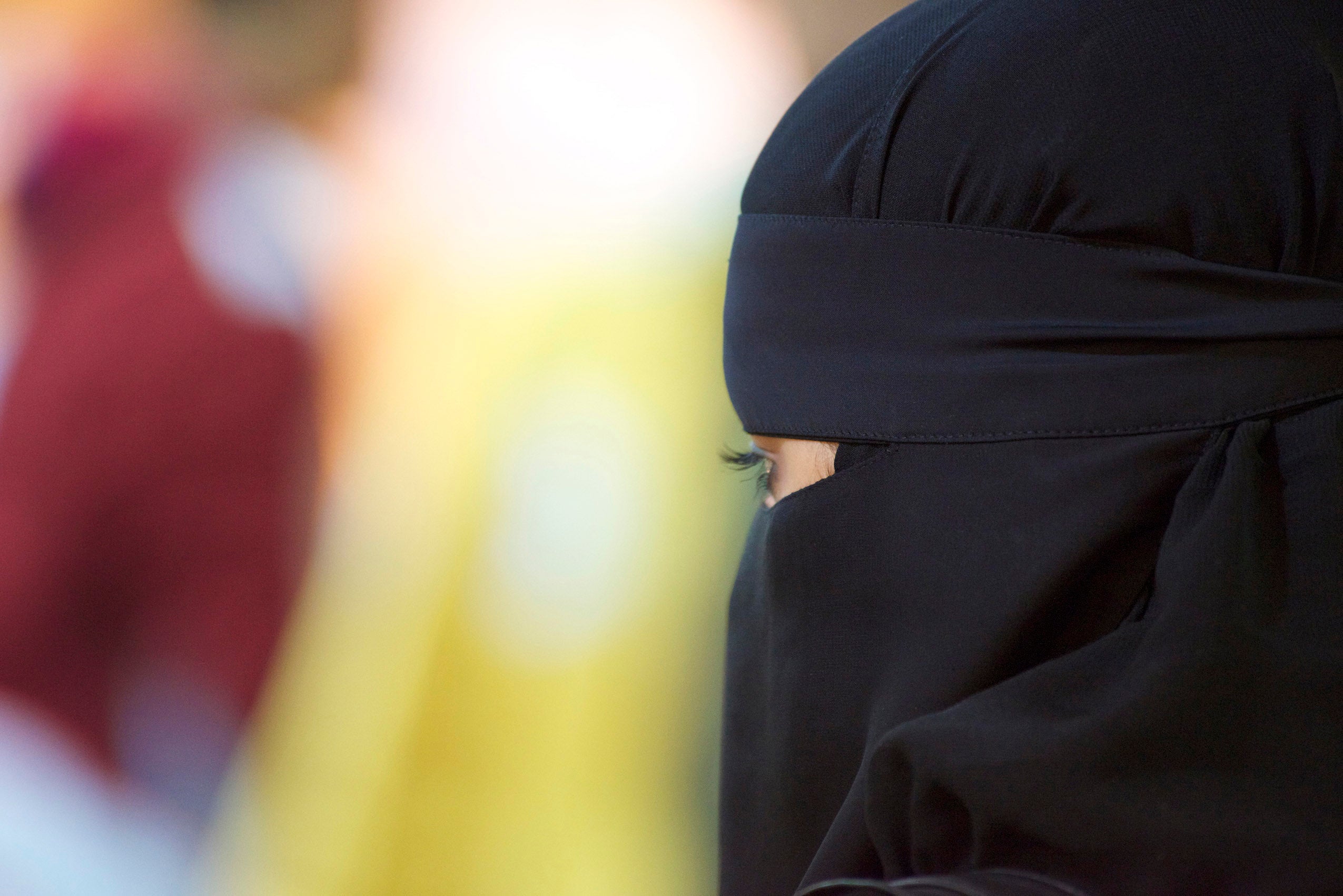People
Gerald Neuman
-
2023 Cravath International Fellows
March 2, 2023
From transgender equality to the rights of displaced persons, four Harvard Law students describe their winter-term projects abroad.
-
Is global tide turning in favor of autocrats?
February 16, 2023
Former Human Rights Watch head Kenneth Roth says that autocrats tend to become more isolated and make poorer decisions as they consolidate power.
-
‘Effectiveness in government is not something one can just assume’
November 18, 2022
In a Library book talk, Professor Vicki Jackson and panelists discuss constitutionalism, and rights to effective government
-
Supreme Court preview: Garland v. Gonzalez
January 4, 2022
Two Harvard Law School scholars explain why the Garland v. Gonzalez case could have broader implications for immigrants and advocates.
-
Lawyers Call Trump’s Defense ‘Legally Frivolous’
February 8, 2021
Taking aim at a key plank of the former president’s impeachment defense, the lawyers argued that the constitutional protections do not apply to an impeachment proceeding...Signed by Charles Fried, Martha Minow, Gerald Neuman, and Laurence Tribe.
-
On the bookshelf
December 15, 2020
In the unusual year of 2020, Harvard Law authors continued to do what they always have: Write.
-
Yuji Iwasawa LL.M. ’78 re-elected to the International Court of Justice
November 19, 2020
On Nov. 12, Japan’s Yuji Iwasawa LL.M. ’78 was re-elected to the International Court of Justice, the U.N.’s principal judicial body, with overwhelming support from the U.N. member states. He will serve a 9-year term.
-
An article by Gerald Neuman: At a time when the rule of law is under threat and xenophobic incitement has become a central government policy, a five-Justice majority of the Supreme Court has called into question the Constitution’s fundamental guarantee against executive detention. Refugees are the primary target of the Court’s decision in Department of Homeland Security v. Thuraissigiam, but the immediate implications of Justice Samuel Alito’s opinion are much wider, and the opinion endangers everyone – U.S. citizens included – by reopening settled questions about the Habeas Corpus Suspension Clause of the Constitution. This important case has gotten less public attention than it deserves. The opinions may be hard for non-experts to follow, because they arise in a technically complex area of immigration law, and because Alito mischaracterizes some of the issues. The case arose when Vijayakumar Thuraissigiam fled Sri Lanka in the hope of being protected by the United States and was arrested by immigration officials in 2017 at a short distance from the southern border. He was placed in rudimentary “expedited removal” proceedings, where his claims for protection were quickly rejected. The statutory provisions on expedited removal clearly preclude anyone in his position from obtaining judicial review, including by habeas corpus, of the legality of the removal decision. The central issue raised by the case was whether this total preclusion of habeas corpus for a refugee within the United States violated the Suspension Clause. Once the Supreme Court granted certiorari, it was likely that five Justices would rule against the refugee’s right to have his particular claims reviewed; the more urgent question was how broadly they would uphold preclusion of judicial review. As it turned out, concerns about a broad ruling were justified. Justice Alito not only rewrote and marginalized prior precedent on habeas corpus, but reached out to decide an important procedural due process issue that his own analysis had rendered irrelevant.
-
Law-enforcement authorities are obligated to protect and facilitate peaceful demonstrations, an influential United Nations human rights panel said on Wednesday, challenging tactics the police have used against anti-racism protests in American cities and around the world. The international treaty governing civil and political rights requires states to allow peaceful demonstrations, not to block or disrupt them without a compelling reason, the United Nations Human Rights Committee said. Authorities should also seek to de-escalate situations that might lead to violence and to use only the minimum force necessary to disperse crowds...The committee of 18 international law experts monitors compliance with the International Convention on Civil and Political Rights, a cornerstone of human rights law signed by 173 countries, including the United States. The panel’s comment, a product of more than two years of deliberations, sets out international guidelines that speak to issues central to America’s deepening discord over the Trump administration’s response to the Black Lives Matter protests in Portland and elsewhere. The protests in Portland and elsewhere swelled after the administration dispatched federal law enforcement officials to confront demonstrators over the objections of local officials...The committee also asserted the “particular importance” of journalists and human rights defenders in monitoring demonstrations, emphasizing they should not be harassed or their equipment confiscated or damaged. Even if violence erupted to a point that justified dispersing a crowd, it did not justify dispersing journalists. “All of these are lessons that the government of the United States should be taking very much to heart,” said Gerald Neuman, a professor of international law at Harvard University who served on the committee.
-
Faculty Books in Brief: Summer 2020
July 23, 2020
From human rights in a time of populism to a comparative look at capital punishment to a focus on disability, healthcare and bioethics
-
Human Rights in a Time of Populism and COVID-19
June 30, 2020
Harvard Law School's Human Rights Program recently spoke with Professor Gerald Neuman about how he sees the landscape changing for countries with populist leaders in the wake of the COVID-19 pandemic.
-
Supreme Court may have undermined its Guantánamo decision guaranteeing rights to noncitizens
June 30, 2020
Each year, the United States deports over 100,000 noncitizens through “expedited removal,” a fast-tracked deportation process. In creating the system, Congress intentionally limited procedural protections for certain immigrants, allowing judges reviewing these removal orders to consider only three narrow questions: whether the immigrant is a noncitizen, has been ordered removed, or is a lawful permanent resident, refugee or asylum seeker. Vijayakumar Thuraissigiam, a Sri Lankan national who sought asylum in the United States, challenged that limit, arguing that it was an unconstitutional barrier to habeas corpus, a right that allows a judge to review whether someone is legally detained. On Thursday, the Supreme Court disagreed, issuing a sweeping ruling in Department of Homeland Security v. Thuraissigiam...Boumediene found that the Constitution guarantees habeas corpus rights even to detainees the Bush administration held as “enemy combatants.” That was true even though the detainees weren’t citizens. In fact, as legal scholar Gerald Neuman put it, Boumediene “confirmed and held that the Suspension Clause constitutionally guarantees habeas corpus to noncitizens” (emphasis original). The Thuraissigiam majority opinion, however, characterizes Boumediene as “forming ‘no certain conclusions’ ” on whether habeas rights extend to “alien[s] who lack … any allegiance to the country.”
-
Harvard experts call ruling on LGBT rights a landmark
June 17, 2020
Harvard faculty members in law and gender issues declared Monday’s Supreme Court ruling protecting gay and transgender workers a landmark for LGBT rights... “It’s based in textual reasoning and rather persuasive in those terms,” said Gerald Neuman, co-director of the Human Rights Program at HLS. “It is written in a way that may be more persuasive to members of the public. The people who are in favor of this kind of discrimination, who are vehemently opposed to this interpretation — I don’t think it will be persuasive to them. But people who might say, ‘I’m not in favor of this kind of discrimination, but I don’t think that the law itself addresses it’ … could be persuaded.” ... In a series of tweets, HLS Professor Laurence Tribe also praised Gorsuch’s work. “Today’s 6-3 triumph for the rights of homosexual and transgender people is a victory for justice and for reading laws as they were written rather than as some assumed or intended them to operate,” he wrote. “Justice Gorsuch conducted a master class in interpreting legal texts when he patiently explained why the unexpressed intentions of a law’s authors or the conversational conventions of its users cannot be permitted to trump its unambiguous meaning…Of course progressives don’t always welcome textual analyses and might worry that this Gorsuch majority will complicate their lives in other contexts. To be sure, this remains a very conservative Court. But I say: Be glad for just outcomes when they come your way.”
-
How do you protect against indirect discrimination?
May 13, 2020
A recent Harvard Law School Human Rights Program (HRP) workshop convened a group of experts for a discussion on indirect discrimination on the basis of religion.
-
An article by Gerald Neuman: The Human Rights Committee’s Draft General Comment 37 on freedom of assembly is an important contribution to the protection of a right that is very much under threat these days. The Committee has long been conscious of the need to address Article 21 of the International Covenant on Civil and Political Rights (ICCPR). The Rapporteur’s initial version and the Committee’s first reading Draft are an excellent start. Now that the Draft is open for comment, it is to be hoped that states and other stakeholders will provide useful input, particularly on practical issues about reconciling the right of peaceful assembly with the rights of others. General Comments are the Human Rights Committee’s most valuable and authoritative pronouncements, because they spell out in direct and concentrated form the Committee’s understanding of state obligations under the ICCPR. General Comments often include passages that clearly intend to provide the Committee’s interpretation of what the Covenant requires, but also passages that recommend best practices for achieving compliance with such obligations. The difference is sometimes marked by use of the verb “must” rather than the verb “should.” A “must” indicates legal obligation, while “should” is more ambiguous and often indicates a softer recommendation.
-
Legal experts: President Donald Trump can’t eliminate birthright citizenship by executive order
October 31, 2018
President Donald Trump's proposal to eliminate birthright citizenship was met with skepticism in Massachusetts Tuesday by legal experts who say it will not pass constitutional muster. ..."The president is coming out of outer space to think that the president has the authority to change the rules on who is a citizen," said Harvard Law Professor Gerald Neuman, an expert on human rights and immigration law. Neuman said there have been occasional movements over the years to change the definition of citizenship, but there "is no credible argument" that it is permissible under the U.S. Constitution. "Tampering with the guarantee of citizenship under the Constitution is an extremely dangerous and serious business," Neuman said.
-
‘A human rights crisis’: US accused of failing to protect citizens from gun violence
September 13, 2018
American gun violence is “a human rights crisis” and the US government’s refusal to pass gun control laws represents a violation of its citizens’ right to life, according to a new report by Amnesty International...While framing America’s gun violence in human rights terms is a symbolic move, “I don’t think it’s symbolic in the empty sense,” said Gerald Neuman, the co-director of the Human Rights Program at Harvard Law School. “For some people who are already concerned about the number of deaths that are occurring, having it framed as a human rights issue may help them understand the issue differently – that there are rights on both sides to be considered.”
-
The Men’s Rights Movement Now Has Its Own Law Firm
September 7, 2018
The National Coalition for Men, a men’s rights organization based in Southern California, has formed the beginnings of an all-volunteer law firm seeking to change legal systems that it claims are discriminatory against men on the state, federal, and even international level. While NCFM’s firm is not the first firm to cater to men’s issues, it may be the first to have grown directly from the men’s rights movement... Asked about the possibility of taking a gender discrimination like that to the United Nations’ judicial arm (aka the International Court of Justice), Harvard Law Professor Gerald Neuman said individuals cannot take cases to the ICJ—only states can. “If that is what they say, they sound very confused,” Neuman said.




